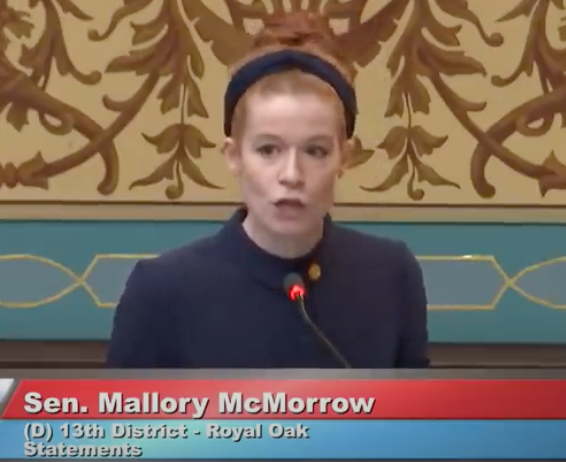Are Speechwriters Contributing to Social Incivility?
May 28, 2014
Those for whom we write determine what values will be promoted at large, not just in that person’s industry or business, and how people shall engage with each other.
When you engage in speechwriting, you have an obligation to help preserve freedom of expression, which is a bedrock principle of civilization itself.
In our business, we promote ideas we like, obviously, and that’s a great thing. But more and more, we are tempted to fight ideas we don’t like not by argument, but by suppression.
Somebody says something offensive on TV or in print, there’s instantly an organized effort not to engage them but to make it personal: to damage their ability to make a living, even to get them fired, to foreclose on their right to speak, and to use the harshest cultural weapons to wreck their reputation. It’s a blood sport.
I don’t deny anyone’s right to do those awful things. The right to free speech comes with the obligation to deal with the consequences. But is this really the kind of society we want?
The right to attack like that is protected by the law and the Constitution, but just because you can do something doesn’t mean you should.
The problem we face can’t be fixed by law, because as I’ll explain it is dangerous to regulate speech. What we need is character and personal responsibility, especially on the part of crafters of messages, such as we are. What I’m calling for is tolerance, but not the tolerance you are familiar with.
Tolerance ought to mean allowing things you disagree with. But tolerance somehow now includes foreclosing on dissent from and disapproval of an ever-growing list of ideas.
Gay marriage. Climate change. A physiological basis for gender roles. Nuclear power. The need for certain kinds of regulation. Question the status quo of the moment on any of these matters and more, and the goal for some quickly goes from debate to personal destruction.
So what do we get? For one thing, we get people demanding—and getting—meetings to re-educate the offender. Just think of that word, re-educate. We have re-education programs in America today against saying or thinking something that others with a little cultural cachet find offensive at any given moment. It’s especially prevalent on college campuses like this one and it makes me sick. We also get threats, and firings: Ask those former hosts at MSNBC about the high price of making a tasteless joke. It’s way out of proportion. Or ask Tea Partiers who call for lower taxes what it’s like to be called Nazis and racists on national television.
The goal of those taking offense isn’t to debate. They’re rarely even offended. Their goal is to shut you up.
If you imagine that your cause is noble enough, and that your opponent is evil enough, you’ll do this, even at the cost of the violence done to our ability to freely offer unpopular ideas. But if we allow those with cultural authority to stifle one voice they don’t like, the next person with cultural authority may decide to stifle you the next time.
The price of free speech is allowing other people to speak freely, too, even if you despise what they say.
* * *
In the West, we think of ourselves as a bastion of openness, but we’re not.
As recently as 2012, some middle-eastern leaders called on America to ban blasphemy. In response, Assistant U.S. Attorney General Thomas Perez told a congressional committee that he certainly wouldn’t rule it out.
And nobody in the government made it a priority to dispute him. Can you imagine? My God.
But you might say, thank goodness, because that's hateful speech. Would such a ban matter, anyway?
Have you seen the TV show Tosh.0? The comedian Daniel Tosh shows videos from the Internet of people doing dangerous, stupid, dirty, explicit, and wildly funny things. As recently as the 1950s, showing that kind of stuff was, in some places, a crime. In the 1950s, the publisher Samuel Roth went to prison for five years for merely advertising the availability of material milder than that, for sale, through the mail. And it was mostly words, not pictures. Roth and others like him offended the status quo, and those with power—people who knew better—stifled them for the sake of “sensitivity,” which they imagined more important than the free exchange of ideas, if they thought about the problem at all.
But what use is freedom of speech if unpopular speech is off limits?
In those days, and more and more today, those who control the government and the culture want to choose what everyone else can read and talk about and believe, asserting, often explicitly, that the rest of us are unqualified to make our own choices. They often make these prescriptions in the name of science, which they define no longer as a process but as a set of temporal conclusions. They use the levers of society to silence their opponents—and often capriciously, which is worst of all, because that gives them the power to intimidate their enemies and give passes to their friends.
Limits on the free expression of ideas require that we allow somebody, or use some rule, to define acceptable topics of discussion for everyone else. Can you imagine anybody having that power for very long before he starts abusing it?
Let's do this with a touchy issue. I can stand up in a lot of places in Washington today and get raucous applause if I say this: Every reasonable person agrees that climate change is real and dangerous, and our planet is in danger if we don't do something very soon.
And people will praise me for stating this obvious truth.
In fact, I might go on to say, climate change is such a threat that we ought to ban speech that denies the existence of global warming. After all, the issue is settled for “every reasonable person.”
So we pass a law to punish global warming deniers and we go on our merry way, and no one gets hurt, and we shut up these Neanderthals once and for all.
This isn’t a fantasy. As far back as 2008, James Hansen, a scientist at NASA, called for public trials for people who expressed doubt about climate change.
Now maybe you say that climate change really is a terrible threat. We ought to consider shutting down disagreement. After all, the threat is dire, and every reasonable person knows it's true.
Let me just pause here to say that I don’t care what you think about climate change. I’m not arguing the issue. But I am saying that our instinct to silence dispute cuts us off from the possibility, however remote, that we are wrong, and ought to continue learning.
Today we feel like we're on the top of the intellectual heap of time and, I suppose, axiomatically, we are, but every generation feels just this way. Mankind has been certain—and wrong—about lots of things. Things even science itself told us were settled. Thank goodness we didn't foreclose on debate.
Some of you know this, my academic background is in physics and mathematics, so I got to study a few things that aren’t quite common knowledge. For instance, around 1900, every educated person believed that physics was all figured out and there was nothing left to know. Every reasonable person knew this, as did the experts.
Then Einstein came along and said every expert in the world was wrong. And he was right.
Up until the 1950s, the vast majority of Americans—even doctors, in their official positions—described homosexuality as a perversion, a mental illness. In many places, it was a crime.
In some places, it's still a crime.
But… it was never against the law to express an opinion about it.
Which brings us to today.
If the laws and new definitions of ethics that the so-called intelligentsia are flirting with today had been in place back then, you could have been arrested for gathering friends in your own home to just talk about an essay in favor of gay rights—because “every reasonable person” knew that being gay was an evil, illegal perversion.
But again, you say, that was a long time ago. We’re so much smarter than people used to be.
Which is just what they said in 1953. And 1900. And 1492. And in a hundred years that's what they'll say about us: Thank goodness we know so much more than those knuckle-dragging idiots back in 2014.
We’re going to be the dummies. It’s just a matter of time. So let’s at least not be the ones who try to win arguments by shutting off our opponents’ ability to speak, pretending we know all there is to know.
* * *
As a speechwriter, you have a responsibility to support an open thoroughfare for all opinions.
Those for whom we write determine what values will be promoted at large, not just in that person’s industry or business, and how people shall engage with each other.
An argumentative leader is showing her employees or followers that they should be argumentative, too, and they will do so without being told explicitly. A respectful leader gets the same “follow-me” effect as does an angry leader, a fearful leader, an indecisive leader, and so on.
My proposition is simple: The people we write for need to speak in such a way to promote the value of open and civil disagreement, which happens to be especially dear, and especially well understood, by the influential people in this room.
But it’s never enough just to tell someone to do some general thing and then go away, so in the spirit of strong speechwriting, let me leave you with five specific actions I hope you will take to advance this goal.
First, create opportunities in your speeches to praise the system of communication that now exists. We have a system of the exchange of ideas that allows people to say whatever they want, and to debate without fear of losing their ability to find work and to function with people who disagree. Do you know how rare this is in the history of humanity—that someone can say something that others may disagree with, then sit down and break bread and conduct commerce with them? That is not only a remarkable outcome in a society, it’s a remarkable rising above human nature. We can’t undervalue that, can’t throw it away. People need to be reminded how rare and peace-making this arrangement is.
Second, remind people that consensus does not make something true. Homosexuality ought to be a crime. Gay marriage will wreck us. Slavery is the natural order. The sun revolves around the earth. This is the graveyard of consensus truths. We count on the heretics, the heterodox among us, to make us think in uncomfortable ways, yet now it is considered intellectually fashionable to drive these people out of discussions. Shame on anyone who considers this progress. Shame on anyone who imagines his own petty position is important enough that it can no longer be questioned.
Third, police your own side. Worry more about calling out your own miscreants than you do about those among your opponents. You cannot afford for others to see you as giving a pass to your own anti-discourse elements. You’re going to be tempted to let them continue, and many times you’re going to excuse them because you don’t take them seriously, but the real reason will be that you know they are effective and you don’t want to lose them. Be better than that. Set the example.
Fourth, present your opponents’ arguments well, then dismantle them substantively. Offer the strongest form of the opposing argument, even better than your opponents do. Be an honest broker. Elevate the level of discourse. Take on the toughest questions first, and in depth.
Finally, be of good cheer. The whole point of what we do as human beings is progress, which is one form of the pursuit of happiness. There are causes to die for, but there are no causes to destroy discourse for—the very system we have for the advancement of human progress. All we have is civilization, and it stands on a bedrock of open discourse. If we lose that, it will be the catalyst for the quick demise of all we have achieved. Words will be supplanted by force, and some are already cheering for that. Lock up my enemies, they say. Shut them up.
Don’t let them win.





